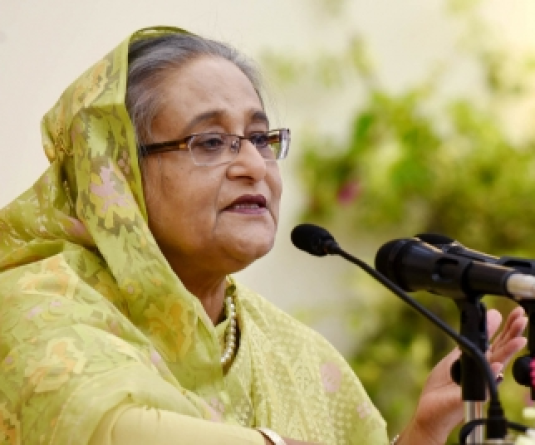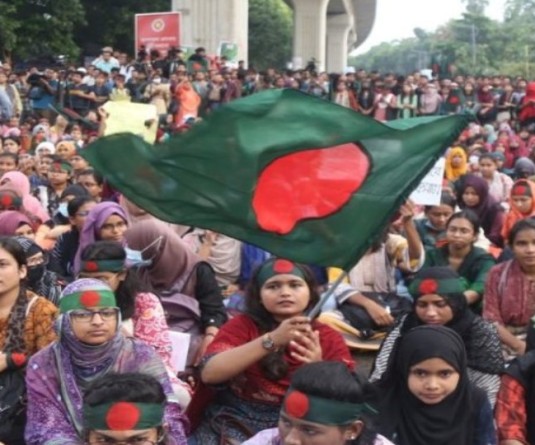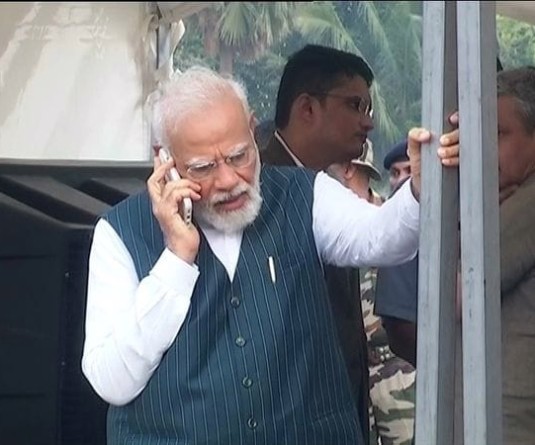
Pocheon, March 4 (AP): It's a world of lawlessness, Rev. Kim Dal-sung muttered over the phone as he drove his tiny KIA over narrow dirt paths zigzagging through greenhouses made of plastic sheets and tubes.
In the bleak landscape of dull blue and gray in Pocheon, a town near South Korea's ultra-modern capital, hundreds of migrant workers from across Asia toil in harsh conditions, unprotected by labouFr laws while doing the hardest, lowest-paid farm work most Koreans avoid.
The death of a 31-year-old Cambodian woman worker at one of the farms in December has revived decades-long criticism over South Korean exploitation of some of the poorest, most vulnerable people in Asia. Officials have promised reforms, but it's unclear what will change.
More than two months after Sokkheng's death, South Korea this week announced plans to improve conditions for migrant farm workers, including expanding health care access. Daunted by opposition from farmers, officials chose not to ban using shipping containers as shelter.
On a chilly February afternoon, groups of workers wearing bandanas and conical hats appeared and disappeared among hundreds of translucent tunnel-shaped greenhouses each about 100 yards long harvesting spinach, lettuce and other winter greens and stacking them high in boxes.
Kim, a pastor and outspoken advocate for migrant workers' rights, is an unwelcome visitor at the farms in Pocheon, especially after the Cambodian woman, Nuon Sokkheng, was found dead on Dec. 20 inside a poorly heated, squalid shelter at one of the farms.
Her death, and those of many others, highlight the often cruel conditions facing migrant workers who have little recourse against their bosses.
Farm owners here are like absolute monarchs ruling over migrant workers, Kim said. Some say they want to kill me.
There are around 20,000 Asian migrant workers legally working on South Korean farms, mostly from Cambodia, Thailand, Vietnam, Indonesia and Nepal. They were brought in under its Employment Permit System. To keep out undocumented immigrants, it makes it extremely difficult for workers to leave their employers, even when they are grossly overworked or abused.
One Korean farmer watched, scowling with hands on his hips, then got on a tractor and began trailing visiting reporters to prevent his foreign employees from talking to them.
Another shouted and waved her hand furiously as she approached, stopping an interview with two Cambodian workers who went back into a shipping container.
South Korean farmers, too, are suffering. The industry is in decline, hurt by decades of labor shortages and increasing foreign competition. They get by importing labor to work long hours for low pay.
Who are you to come here? the woman farm owner fumed. Do you even know what farming is really like?
Activists and workers say migrant workers in Pocheon work 10-15 hours a day, with only two Saturdays off per month. They earn around 1,300-1,600 per month, well below the legal minimum wage their contracts are supposed to ensure.
Rising before sunrise, they crouch or bend for hours as they work their way through the huge plastic tunnels at each farm, planting, weeding, picking and thinning crops.
The workers often are crammed in shipping containers or flimsy, poorly ventilated huts, like the one where Sokkheng died.
Activists who interviewed her coworkers say she came to Pocheon in 2016 and died just weeks before she was due to return to Cambodia to spend time with her family. Sokkheng appeared to have no obvious health problems, but an autopsy showed she died from complications from cirrhosis, likely worsened by the harsh conditions she lived and worked in, the activists say.






